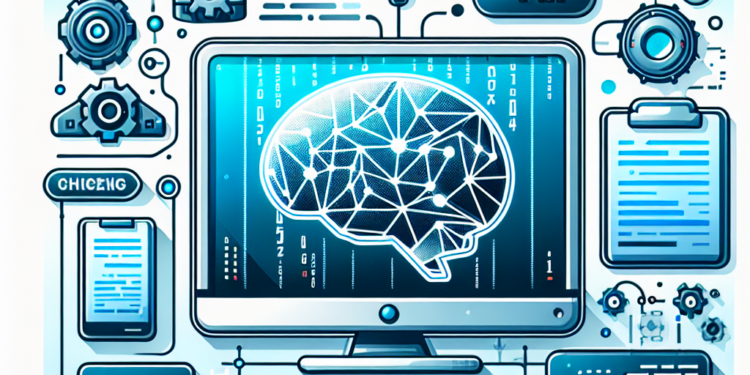Advanced AI Programming Techniques
In recent years, the field of artificial intelligence (AI) has seen rapid advancements and breakthroughs that were once only thought possible in science fiction. From self-driving cars to personalized recommendation systems, AI has become an essential and ubiquitous part of everyday life.
Behind the scenes of these cutting-edge AI applications are advanced programming techniques that are constantly evolving and pushing the boundaries of what is possible. In this article, we will explore some of the most exciting and innovative AI programming techniques that are shaping the future of AI technology.
One of the key advancements in AI programming is the use of deep learning neural networks. Deep learning is a subset of machine learning that uses neural networks with multiple layers to process and learn from large amounts of data. These neural networks are able to automatically extract complex patterns and features from the data, making them well-suited for tasks such as image and speech recognition.
One of the most popular deep learning frameworks is TensorFlow, developed by Google. TensorFlow provides a powerful and flexible platform for building and training deep neural networks. With TensorFlow, developers can easily create and experiment with complex neural network architectures, such as convolutional neural networks (CNNs) and recurrent neural networks (RNNs).
Another important technique in AI programming is reinforcement learning. Reinforcement learning is a form of machine learning where an agent learns to make decisions by interacting with an environment and receiving rewards or punishments based on its actions. This technique is commonly used in tasks such as game playing and robotics.
One of the most famous examples of reinforcement learning is AlphaGo, a program developed by DeepMind that was able to defeat the world champion of the game Go. AlphaGo used a combination of deep neural networks and reinforcement learning to learn from the millions of games it played against itself, eventually becoming the best Go player in the world.
In addition to deep learning and reinforcement learning, another important technique in AI programming is natural language processing (NLP). NLP is a subfield of AI that focuses on the interaction between computers and humans using natural language. This includes tasks such as speech recognition, language translation, and sentiment analysis.
One of the key challenges in NLP is understanding the context and meaning of natural language. This is where techniques such as word embeddings and attention mechanisms come into play. Word embeddings are mathematical representations of words that capture their semantic meaning, allowing neural networks to better understand and process natural language. Attention mechanisms, on the other hand, allow neural networks to focus on different parts of a sentence or document, improving their ability to understand and generate human-like text.
In recent years, the field of AI programming has also seen an increased focus on interpretability and explainability. As AI-powered systems become more integrated into society, it is important for developers and users to understand how these systems make decisions. Techniques such as explainable AI and model interpretability aim to open up the “black box” of AI algorithms and provide insights into how they work.
One of the challenges in developing interpretable AI models is balancing accuracy and transparency. While complex neural networks may achieve higher levels of performance, they are often difficult to interpret and explain. One approach to this problem is to use simpler models that are easier to understand, such as decision trees or linear models.
In addition to interpretability, another important consideration in AI programming is ethics and fairness. As AI systems become more prevalent in areas such as healthcare, finance, and criminal justice, it is essential to ensure that these systems are fair and unbiased. Techniques such as fairness-aware machine learning and algorithmic auditing aim to address these concerns and promote ethical AI development.
Overall, advanced AI programming techniques are playing a crucial role in shaping the future of AI technology. From deep learning neural networks to reinforcement learning algorithms, these techniques are enabling AI systems to perform increasingly complex and human-like tasks. As AI continues to advance, it is important for developers to stay on the cutting edge of these techniques and push the boundaries of what is possible in AI programming. The future of AI is bright, and with continued innovation and collaboration, the possibilities are endless.













